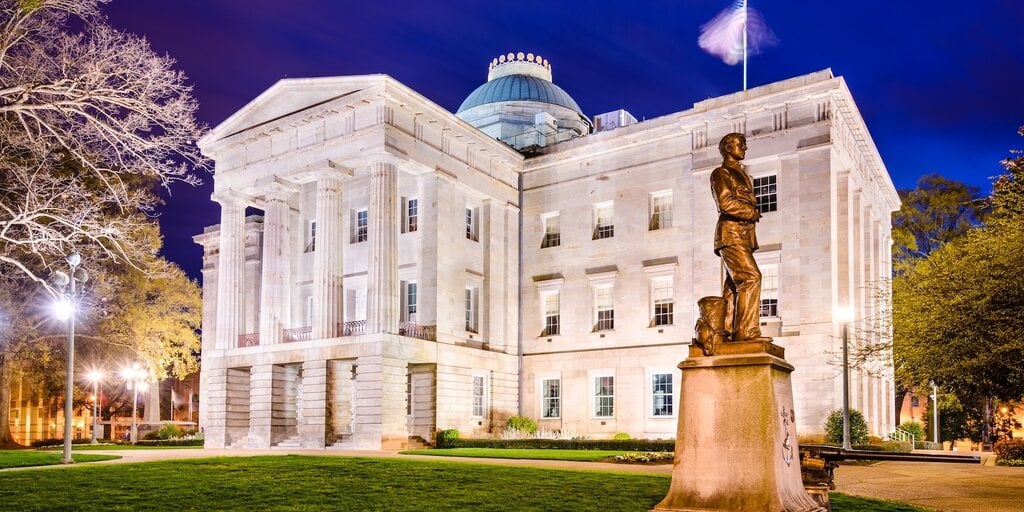North Carolina’s House of Representatives passed a bill that would authorize the state to invest in digital assets, part of a push among states to adopt crypto.
The measure now moves to the Senate for further debate.
Dubbed the “Digital Assets Investment Act,” HB92 was introduced on February 10 and passed its third reading in the House on Wednesday.
Primarily sponsored by Republican House Speaker Destin Hall, the bill will allow the State Treasurer to invest in qualified digital assets and consider incorporating them into state employee retirement plans.
It instructs the Treasurer’s office to explore suitable investment vehicles, recommend contribution limits, and develop educational materials outlining the risks of digital asset investments.
The bill also proposes a feasibility study on establishing a state-run reserve for seized or forfeited crypto assets, to be overseen by the State Bureau of Investigation in coordination with law enforcement.
The time is now
As former President Donald Trump champions crypto initiatives on the federal stage, individual states are rapidly passing legislation to carve out a place in the digital economy, ranging from pension allocations to Bitcoin-backed strategic reserves.
Backing up the House bill, a second measure in North Carolina, SB 327, also known as the “Bitcoin Reserve and Investment Act,” was filed on March 19.
That proposal would allow up to 10% of public funds to be allocated into Bitcoin, creating a formal reserve and enabling staking, lending, and other yield-generating strategies.
Sponsored by Republican Senators Todd Johnson, Brad Overcash, and Timothy Moffitt, the bill positions Bitcoin investment as a “financial innovation strategy” to boost the state’s economic profile.
It has passed its first Senate reading and has now been referred to a committee where it must undergo several hurdles, including further readings, in order to become law.
North Carolina isn’t alone. Arizona, New Hampshire, and Texas are all considering similar Bitcoin reserve legislation, according to state crypto law tracker Bitcoin Laws.
Meanwhile, at least a dozen other states are reviewing related proposals, some of which are juggling multiple crypto bills at once.
Several states, including Indiana and Florida, are considering legislation to allow digital assets as options within public pension systems.
But momentum has stalled elsewhere. Initiatives in Oklahoma, Montana, Pennsylvania, North Dakota, South Dakota, and Wyoming have failed to gather support.
North Carolina’s HB92 itself was revised slightly in ambition as it was examined in the House.
Although an earlier version proposed digital asset investments not exceeding 10% of the fund’s balance, the latest iteration has reduced the maximum limit to just 5%.
Edited by Sebastian Sinclair
Daily Debrief Newsletter
Start every day with the top news stories right now, plus original features, a podcast, videos and more.



